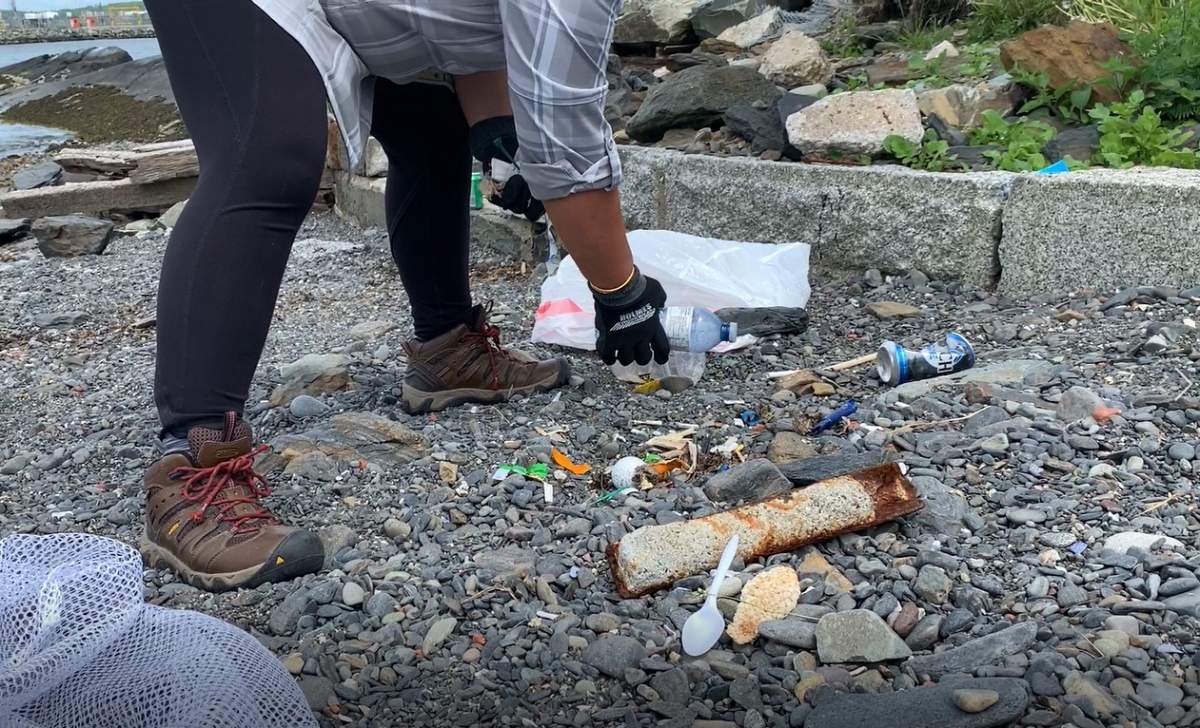Dozens of people showed up at a park in the heart of Halifax for a shoreline cleanup for Canada’s Ocean Week.

The goal of the Point Pleasant Park event was to raise awareness about plastic pollution in the Atlantic Ocean and beaches.
Natasha Tucker, executive director of Plastic Oceans Canada says it’s not massive debris items that are causing the most harm to marine life.
“It’s truly the pieces of micro-plastic that are the problem. It’s the little pieces of cigarette butts, plastics in your Tim Horton’s coffee cup that has a plastic lining,” she said.
“That stuff doesn’t ever go away. Plastic doesn’t ever degrade.”
Tucker said the effects of micro-plastics are not just limited to the environment and wildlife.

Get breaking National news
“What happens when the fish eat it, and then bigger fish eat it, and we eat those fish, we’re consuming micro-plastics,” she said.
Researchers from Hull York Medical School in the UK found earlier this year that micro-plastics can be found in human blood. They have also more recently been detected in lungs. The report released in March read: “Plastics are designed to be durable, so they may remain inside the body for long periods without the possibility of these being broken down or removed.”
On average, according to Tucker, people consume about a credit cards-worth of micro plastics every week.
“It’s affecting us now… It’s very scary.”
Those who volunteered at Point Pleasant Park on Saturday filled several bags with plastic garbage.
For 12-year-old volunteer Hayden Kaiser it was a day of reflection. “Kind of sad,” Kaiser said, “taking a moment to realize how animals in the ocean are dying.”
Tucker said shoreline cleanups are important for keeping communities clean and raising awareness.
But with the rates of global polluting — about one dump truck of plastic is unloaded into the ocean every minute — one cleanup isn’t going to reverse that.
“This isn’t our term to coin but nonetheless, we need to turn off the tap on plastic pollution,” she said.
“It’s really about demanding more from businesses… It’s about us as consumers, voting with our dollar.”











Comments
Want to discuss? Please read our Commenting Policy first.